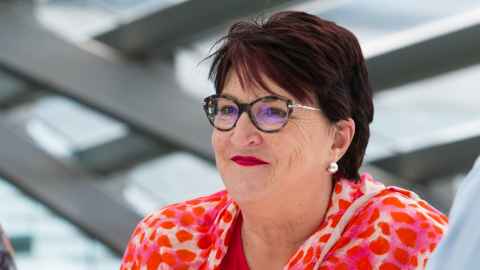Strategic Supply Chain Management programme 2020

From a supply chain perspective, there was one very good thing about COVID-19: more people realised that supply chains are really important and that taking them for granted is a very bad idea.
There are currently thousands of capable people needed in supply chain roles in New Zealand businesses with many more in supply chains globally. The problem is almost uniformly the lack of well trained and experienced supply chain people for those roles.
In New Zealand, we have had an immature view of supply chains and many companies know little about how to optimise them so that products and services get to customers through multiple suppliers as efficiently and effectively as possible. We have had old models of collaboration and working across the ‘chain’ (or most likely the supply network) preferring to take a prescriptive approach to relationships rather than a collaborative one.
COVID-19 conditions have shown up the gaps in our understanding of efficiency, use of data and what is possible when people collaborate to create bigger, faster, more resilient networks that bring customers and suppliers closer together. The possibility also exists to solve gnarly old problems by looking at them differently.
So, what does this mean for our Strategic Supply Chain Management programme this year?
This programme is the only ‘strategic’ supply chain programme run in New Zealand for professionals who want to progress to more senior and strategic supply chain leadership roles. The crisis background we have this year gives us a remarkable opportunity to study crisis conditions and identify responses that don’t just solve immediate problems but deliver new sustainable solutions.
As always, we will be bringing senior supply chain leaders together with our academics to discuss critical aspects of end-to-end supply chain operations. We will traverse a wide variety of topics and go into depth to unpack the successes and challenges of different supply chain change projects.
This year, participants will be working with people in both the CIO and CFO programmes so that we can all get a better understanding of what it takes to be an enterprise-level leader, not just a functional one. The challenges of recognising and working with complex problems and decision making will be tackled in the first module. This will aid participants as they work on projects designed with managers, mentors and academic advisers.